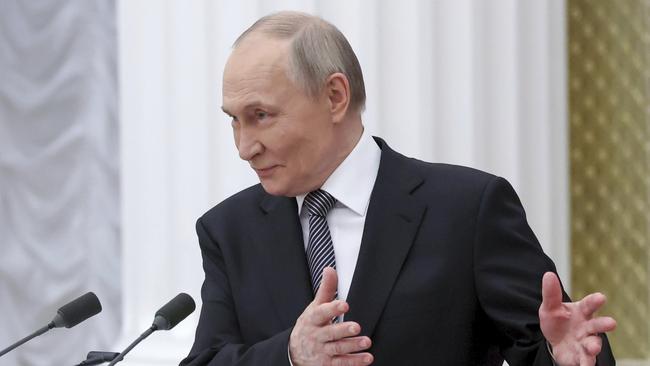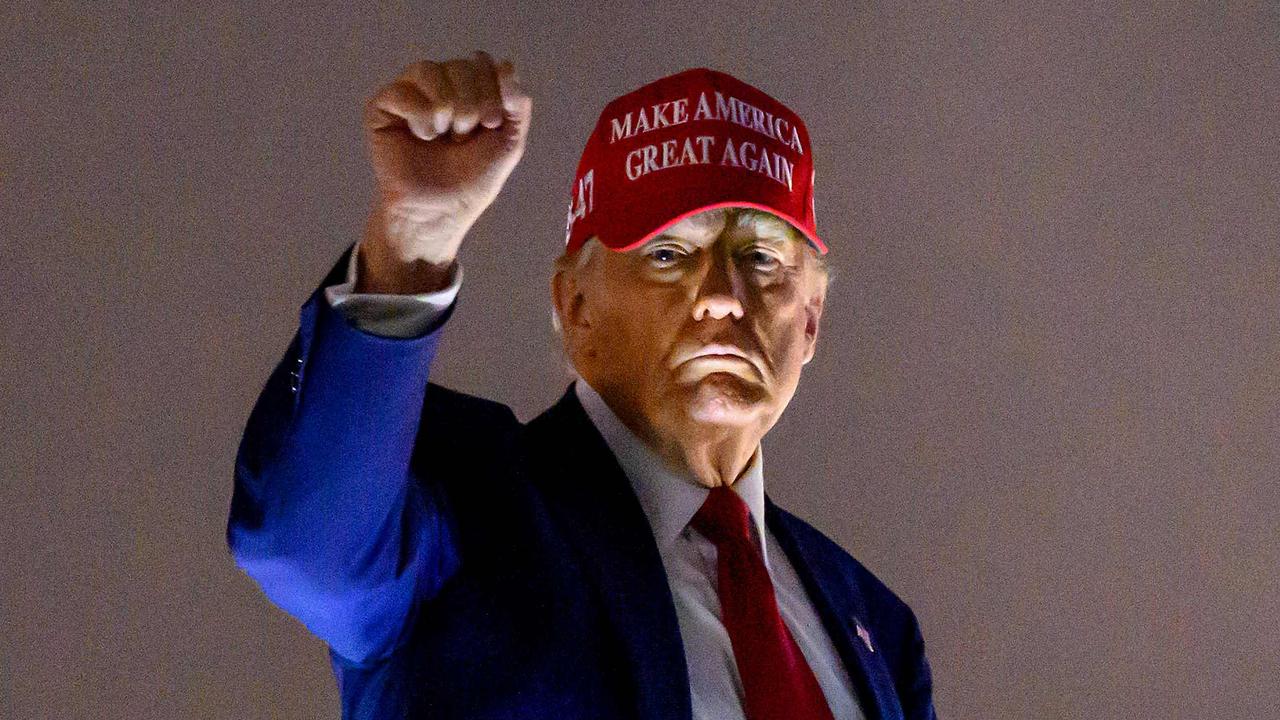Moscow, Kyiv in Black Sea deal, but there’s a catch
Although Russia and Ukraine have agreed a ceasefire in the Black Sea, Vladimir Putin has put a poison pill in the deal by demanding Western sanctions are lifted on key Russian companies.

Russia and Ukraine have agreed a ceasefire in the Black Sea but the Kremlin has made it conditional on Western sanctions being lifted against key Russian companies.
The White House announced Kyiv and Moscow had agreed to “ensure safe navigation” and “eliminate the use of force” in the waters three years after Russia’s full-scale invasion of Ukraine.
Ukrainian President Volodymyr Zelensky welcomed the agreement as a step in the “right” direction but criticised the White House’s attitude to softening economic pressure on Moscow.
“We believe that this is a weakening of the (West’s) position and a weakening of sanctions,” he said.
The Kremlin warned that the agreement would come into force only if Western sanctions on Russian agricultural companies and one of its biggest banks were lifted.
The White House said it was ready to “help restore Russia’s access to the world market for agricultural and fertiliser exports” and “enhance access to ports and payment systems for such (Russian) transactions”.
The statement did not specifically mention the word “sanctions” but Mr Zelensky said that Kyiv wanted to see more details of the agreement.
A Downing Street spokesman declined to say whether the UK would follow any easing of sanctions, stating: “Our position at the moment is that we are obviously hopeful of the progress.” He added: “Western nations, including the UK, have imposed a series of sanctions on Russia since its full-scale invasion of Ukraine, including increased tariffs on Russian fertiliser and agricultural products and prohibiting companies from providing insurance for shipments of certain Russian goods.”
The deal, which follows talks in Saudi Arabia via US officials, also states Russia and Ukraine will “develop measures” to stop attacks on each other’s energy infrastructure.
The Kremlin said a ban on targeting energy facilities would last for 30 days but be backdated to March 18, as it was announced last week after a call between Vladimir Putin and US President Donald Trump. The ceasefire could be extended, it said, but it falls far short of the comprehensive 30-day ceasefire Washington had been seeking.
The deal would cover attacks on pipelines, power stations and refineries as well as “electricity generation and transmission infrastructure”, the Kremlin said.
Ukraine has already accused Moscow of repeatedly breaking its word with continuing attacks.
The Black Sea agreement comes more than three years after Russian warships fired on Ukrainian forces on Snake Island, near the Danube delta, in one of the first confrontations of the war.
A truce at sea is likely to have little impact on the course of the conflict, which has evolved into land battles of attrition and aerial attacks along a 965km front. Maritime clashes have been infrequent since 2023.
The Kremlin said the ceasefire was conditional on Rosselkhozbank, Russia’s main bank for agricultural transactions, and other financial institutions involved in food and fertiliser trade being reconnected to Swift, the global payments system.
The Times



To join the conversation, please log in. Don't have an account? Register
Join the conversation, you are commenting as Logout